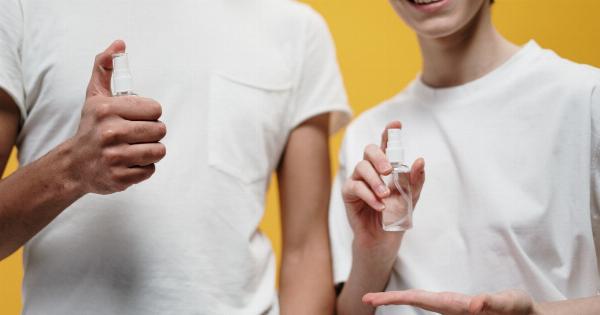Drinking alcohol has become a common activity in our social lives. However, when trying to get pregnant, alcohol may become a big concern for women and their partners.
Consuming alcohol while trying to conceive can harm the chances of getting pregnant and also puts the fetus at risk. In this article, we will explore how much alcohol can you drink while trying to conceive and how it impacts fertility.
What is the impact of alcohol on fertility?
Alcohol consumption has a significant effect on fertility, for both men and women. Regular, heavy alcohol consumption can negatively affect the hormone production and disrupt normal ovulation.
Furthermore, it can negatively impact the sperm production in men and lower the sperm’s mobility. When it comes to women, alcohol intake can affect the menstrual cycle, cause hormonal imbalances, and impair the quality and quantity of eggs produced. In both cases, the more a person consumes alcohol, the higher the risk of infertility issues.
How much alcohol is safe while trying to conceive?
There is no safe amount of alcohol that can be considered when trying to conceive. The most responsible approach is to refrain from drinking any alcohol during this period.
However, if you do decide to drink, one drink per week is considered safe for both men and women. It’s important to keep in mind that some drinks have a higher alcohol concentration than others, so always keep an eye on the amount of alcohol you are consuming.
For instance, one glass of wine is equivalent to one shot of liquor and one beer bottle. Also, binge drinking must be avoided at all costs since it can cause significant harm to any pregnancy, as well as during the conception period.
How does alcohol consumption impact pregnancy?
Drinking alcohol during pregnancy is a big concern since it can harm the developing fetus.
This is because alcohol consumption during pregnancy can interfere with the baby’s development and cause a range of birth defects known as fetal alcohol spectrum disorders (FASDs). There is no particular quantity of alcohol that can be considered safe during pregnancy since even small amounts can cause harm to the fetus. The best approach is to refrain from drinking alcohol during pregnancy and while trying to conceive.
What are the dangers of alcohol consumption during pregnancy?
Drinking alcohol during pregnancy increases the risk of a range of health problems for the developing fetus. These include:.
- Mental retardation
- Brain damage
- Birth defects, for instance – hearing loss, vision damage, and heart defects
- Poor growth in the womb
- Low birth weight
- Preterm labor
- Stillbirth
How does alcohol influence sperms quality?
Alcohol consumption affects men’s fertility by reducing both the quality and quantity of sperm produced in the testes.
Regular alcohol consumption is known to impair the sperm’s mobility, which is what helps it swim towards the egg more effectively. Also, alcohol can damage the DNA present in the sperm and lead to faulty or abnormal sperm that cannot fertilize an egg appropriately. In severe cases, alcoholism can even lead to a complete cessation of sperm production.
How can alcohol be harmful to the lifespan and health of an embryo?
Alcohol can have severe implications on fetal development, causing developmental delays and growth retardation as well as brain damage. Drinking alcohol while pregnant increases the risk of premature birth, stillbirth, and miscarriage.
Additionally, alcohol consumption during pregnancy is also known to cause developmental disorders, which manifest as behavioral, intellectual, and physical issues during childhood and even adulthood.
Impacts of alcohol in vitro fertilization?
IVF is an assisted reproductive technique used to improve infertility issues, and alcohol consumption can negatively impact its outcome.
Drinking alcohol during the IVF process has been shown to reduce IVF birth rates by affecting the quality of the eggs produced, the implantation success rate, and the chance of a successful pregnancy. If you are planning to undergo IVF, it’s best to abstain from alcohol consumption entirely during the process.
What about men, is alcohol consumption safe for men while trying to conceive?
Alcohol intake should indeed be avoided during the conception period since excessive drinking can impair the sperm’s quality and mobility.
Drinking even small amounts of alcohol can impact sperm count, morphology, and motility in men, making it more challenging to conceive. Even worse, heavy drinking can damage the DNA in sperm cells, reducing the quality of the sperm produced and significantly reducing the chance of a successful pregnancy.
Conclusion
Alcohol consumption has a detrimental impact on fertility, and it should be avoided entirely while trying to conceive.
Regular, heavy alcohol consumption can negatively affect the hormone production, disrupt normal ovulation in women, negatively impact the sperm production in men,and lead to a range of developmental disorders in fetuses. Although frequent, moderate drinking may have minimal repercussions, even small amounts of alcohol increase the risk of infertility issues and fetal health problems.




























